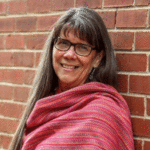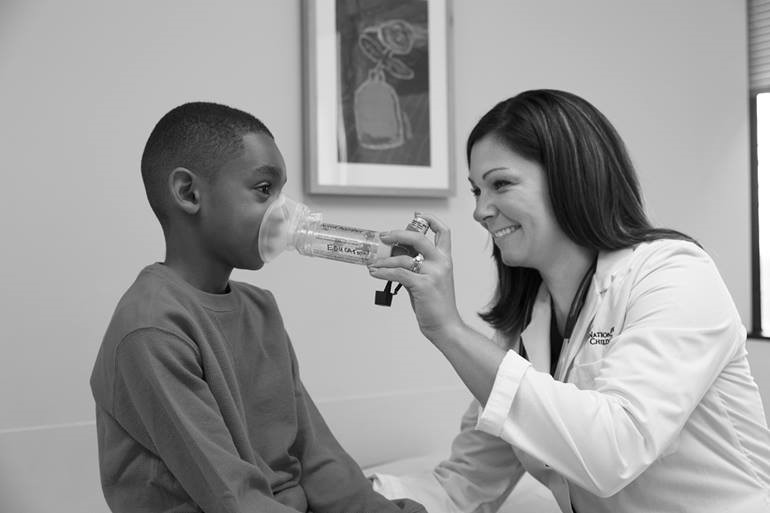The Joys and Challenges of Rural Pediatrics
The Joys and Challenges of Rural Pediatrics https://pediatricsnationwide.org/wp-content/uploads/2019/01/AdobeStock_68717449-rural-header-1024x575.gif 1024 575 Jill Neff, DO Jill Neff, DO https://pediatricsnationwide.org/wp-content/uploads/2021/03/Jill-Neff.gif- January 22, 2019
- Jill Neff, DO

I often tell my medical students to choose not just a specialty but, first, a place where they want to live. Being happy with one’s life is more important than just being happy with one’s job. If a person prefers to live in a rural setting, then they probably should not become a neuro- or cardiovascular surgeon that requires a fairly dense population to support their specialty. Happiness needs to surround a person in all aspects.
I knew I needed a rural life, and pediatrics fit that just fine. And all my years of practice, that has continued to be true.
I know my patients and their families as if they were my own. I call all my patients “my kids” and feel a bit responsible for their trials and tribulations. We’re all part of the same small community, so we know each other in ways most physicians and patients don’t experience.
I have been to pageants, spelling bees, birthday parties and weddings. I have attended to kids hurt on the football field, basketball floor and at parades. I was invited as one patient’s “grandparent” on grandparent day at school (when I was a mere 31 years old). I went “back to school” for an afternoon of teaching. I taught at a free summer arts and crafts camp, and I led Brownies on a nature hike.
I know that one of my “kid’s” grandmother drives the school bus and another one raises goats and makes soap. I know which uncle fixes cars and which dad to call to fix my lawn mower.
Life in a rural area is different from that in more urban areas. And it permeates my life and my medical practice. I have an egg lady. She drops off eggs from her farm at the office. My fix-it-man has three beehives at my house. If I don’t know someone in town by name, I know them by face, and I greet them at the post office, the grocery and the gas station.
Rural life and medicine can be frustrating, too. As a rural pediatrician, I have few, if any, peers with whom to converse. Precious few medical support systems such as labs and X-rays are readily available. And the call schedule? Well, that doesn’t exist. I am the only one on call.
Upon first moving to rural Ohio, I listed my home phone number. At the time, my husband told me I was crazy. He thought that people would be calling all hours of the day and night and I would never get any peace and quiet. But, here’s what happened: hardly anyone has EVER called me, maybe two or three a month, sometimes none. And when they do, the first minute on the phone call is them uttering profuse apologies for bothering me. I am convinced that the folk in rural America have gotten by for so many generations relying on family and their own sense of awareness that they either make it until morning and then call the office or realize that it is a true emergency and they find their way to the ED.
Time away from work is a scarcity. I’m the kids’ doc whether I’m in the office or watching the Friday night game. And the pay? Well, it’s rural. Jobs are not readily available, and family incomes are low. Many of my patients are on Medicaid. No one becomes a rural pediatrician for the salary.
Challenges? Yes. But, I have used my skills and knowledge and worked it out. Living a couple hundred miles (a two-hour drive) from the closest pediatric specialty hospital with specialists and support systems, there has been no other option.
“Best practices” are sometimes impossible with our resources.
I have treated pneumonia by history and exam. No X-ray. I have given shots of Rocephin without a spinal tap, feeling confident that the patient has meningitis and not wanting to wait the hours it takes to get them to a hospital. LifeFlight has landed in the field beside my office to pick up a critically ill child. I have personally ridden with families/transported several children myself to the local emergency department instead of waiting for an ambulance.
I have hung IV drips from the ceiling tile, babysat a sibling as the parent leaves with the sick child on the way to the hospital, and sent my office assistant as a ride-along and hand holder for the two-hour drive to the closest children’s hospital. My office has handed out gas cards and $20 bills so that patients who need to go to the hospital can get there. I have brought my pets in to comfort the children, made many house calls and transported Amish families in my private vehicle in the middle of the night.
Without the luxury of specialist just down the street, I have learned, and am continuing to learn, how to treat most things myself.
It has been hard. It has been rewarding. It has even been fun.
What are my rewards? The smiles of the children, the hugs in the stores, the invitations to events, and the time that I can spend quietly on my 50 acres, far from the noise of the city, all without a commute. Personally, it’s the life I love. Professionally, it’s satisfying. And never boring.
About the author
Dr. Neff completed medical school at the Ohio University College of Osteopathic Medicine, Athens, Ohio, and a pediatrics residency at the Doctors Hospital of Stark County, Ohio. She is the owner/pediatrician of Hometown Pediatrics in Jackson, Ohio.
-
This author does not have any more posts.
- Post Tags:
- General Pediatrics
- Primary Care
- Posted In:
- Features
- Second Opinions






